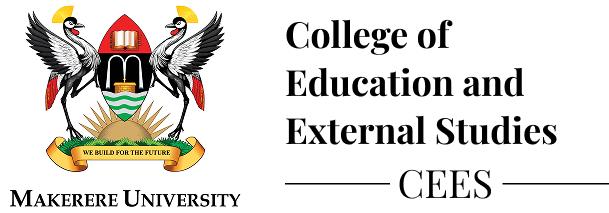October 21
@
10:00 am
–
1:00 pm
INVITATION: The Dean, School of Education under the College of Education and External Studies (CEES), cordially invites you to the PhD Public Defense of the following candidate:
Name of the Candidate: Ms. Aminah Mukasa
Title of Thesis: Proprietor vis-à-vis Headteacher Power Dynamics
in Managing for Profit Secondary School Finances in Kampala
Metropolitan Area, Uganda
Date: Tuesday 21st October 2025.
Time: 10:00 am
Venue: School of Education Smart Room, College of Education and External Studies, Makerere University
Supervisors:
Dr. Badru Musisi and Associate Professor Betty A. Ezati
Abstract:
Effective financial management in schools is a fundamental administrative function entrusted to school managers. Operating within established regulatory frameworks, school managers align financial decisions with achieving educational excellence. In Uganda’s for-profit secondary schools, proprietors and headteachers are responsible for ensuring institutional efficiency through prudent mobilization and utilization of financial resources. Any lapses in managing school finances can lead to wastage of scarce resources, which undermines school effectiveness. This study investigated the power dynamics between proprietors and headteachers in managing school finances in Kampala Metropolitan Area (KMA). Specifically, the study explored how proprietors and headteachers exercise powers in four key financial management domains of; school budgeting, fees collection, procurement, and financial accountability. Grounded in an interpretivist philosophical paradigm, the study was a qualitative multiple case study conducted in six for-profit secondary schools in KMA. Two schools cater for high-income families, two for middle-income, and two to low-income families. Data were collected from 12 purposively selected participants (six proprietors and six headteachers), and was analysed using content and thematic analysis techniques. Findings indicate that, proprietors routinely appropriate and centralize decision-making powers, thereby constraining headteachers’ statutory powers to manage; school budgeting, fees collection, procurement, and financial accountability. This imbalance of power diminishes headteachers’ professional autonomy and in some cases undermines effective financial management practices. In one case where the proprietor delegated greater financial management responsibilities to the headteacher, it was due to the proprietor’s lack of experience in school management. The study concludes that that the pursuit of business interests tempts proprietors to circumvent regulations on managing school finances, by usurping the headteachers’ powers of managing school; budgeting, fees collection, procurement, and financial accountability. Some proprietors don’t even consider themselves accountable to headteachers, who are the schools’ statutory accounting officers. The study recommends that: Local governments strengthen their inspection, supervision, and advisory support mechanisms to ensure that headteachers fully participate in managing school finances. Secondly, proprietors need to foster a culture of collaborative power-sharing, distributed leadership, and mutual respect to enhance efficiency and accountability in fees collection. Thirdly, schools need to adopt structured procurement management systems consistent with the Public Procurement and Disposal of Public Assets (PPDA) Guidelines No. 5 (2014) to ensure transparent and streamlined processes. Finally, regulatory authorities need to enforce compliance with existing laws that empower headteachers to account and report school expenditure to the relevant oversight, in a transparent way. The study contributes to the broader discourse on educational leadership, governance, and accountability in private education systems. It also underscores the need for balanced power relations and institutional mechanisms that promote participatory and transparent financial decision-making, for sustainable school effectiveness.
Keywords: Financial management, Power dynamics, Proprietors, Headteachers, For-profit secondary schools, Kampala Metropolitan Area, Interpretivist paradigm, Qualitative case study
Your presence and participation will be highly appreciated as we support the student in this important academic milestone.

